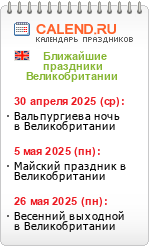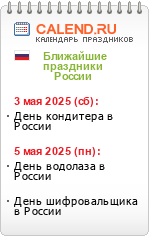Косвенная речь
(Основные правила)
Если слова автора стоят в настоящем времени, то при изменении прямой речи в косвенную местоимения меняются по смыслу, а личные формы глаголов согласуются с местоимением-подлежащим:
Таблица 1
|
Прямая речь |
Косвенная речь |
|
Не says, "This is a cat". |
He says that this is a cat. |
|
Не says, "I do my room myself. . |
He says that he does his room himself |
|
She says, "Robin, I know your Daddy". |
She says to Robin that she knows his Daddy. |
Если слова автора стоят в прошедшем времени, то при изменении прямой речи в косвенную видо-временная форма меняется по таблице:
Таблица 2
|
Время прямой речи |
Время косвенной речи |
| Present Indefinite/Simple | Past Indefinite/Simple |
| Present Continuous/Progressive | Past Continuous/Progressive |
| Present Perfect | Past Perfect |
| Present Perfect Continuous /Progressive | Past Perfect Continuous /Progressive |
| Past Indefinite/Simple | Past Perfect |
| Past Continuous/Progressive | Past Perfect Continuous /Progressive |
| Past Perfect, Past Perfect Continuous /Progressive | не изменяются |
| Future tenses | Future-in-the-Past tenses |
Иногда полезно использовать следующую таблицу:
Таблица 3
|
Форма глагола в прямой речи |
Форма глагола в косвенной речи |
| am, is | was |
| are | were |
| do, does | did |
| did (+инфинитив) | had (+Participle II) |
| have, has | had |
| shall | should, would |
| was, were | had been |
| will | would |
Примеры предложений:
Таблица 4
|
Прямая речь |
Косвенная речь |
|
She said, "I am a teacher". |
She said that she was a teacher. |
|
She said, "They are sitting". |
She said that they were sitting. |
|
She said, "Cathy has arrived". |
She said that Cathy had arrived. |
|
She said, "I have been cleaning my flat since early morning". |
She said that she had been cleaning her flat since early morning. |
|
She said, "I posted two letters". |
She said that she had posted two letters. |
|
She said, "I was washing my hair then". |
She said that she had been washing her hair then. |
|
She said, "Before I started to work I had graduated from the university". |
She said that before she had started to work she had graduated from the university. |
|
She said, "I shall come". |
She said that she would come. |
Таблица 5
|
Прямая речь |
Косвенная речь |
|
can |
could |
|
could |
could |
|
may |
might |
|
might |
might |
|
must |
had to |
|
ought |
ought |
|
need, needs |
needed |
|
have to/ has to |
had to |
Специальные вопросы
Специальный вопрос в косвенной речи оформляется следующим образом:
- используется прямой порядок слов;
- осуществляется замена местоимений и согласование глаголов;
- используется вопросительное слово из прямой речи;
- слово say/ tell заменяется на ask.
Таблица 6
|
Прямая речь |
Косвенная речь |
|
She said, "Why do you like your teacher, Ann?" |
She asked Ann why she liked her teacher. |
|
She said, "Where can they sit?" |
She asked where they could sit. |
|
She said, "When did Cathy arrive?" |
She asked when Cathy had arrived. |
|
She said, "What have children been cleaning since early morning?" |
She asked what children had been cleaning since early morning. |
|
She said, "Who has posted two letters?" |
She asked who had posted two letters. |
|
She said, "Who were they speaking about?" |
She asked who they had been speaking about. |
|
She said, "How could he open the safe?" |
She asked how he could have opened the safe. |
|
She said, "When shall I be free?" |
She asked when she would be free. |
Общий (альтернативный, разделительный) вопрос
Общий (альтернативный, разделительный) вопрос в косвенной речи оформляется следующим образом:
- используется прямой порядок слов;
- осуществляется замена местоимений и согласование глаголов;
- используется слово if перед началом передачи прямой речи;
- слово say/ tell заменяется на ask.
Сравни косвенный специальный и косвенный общий вопросы:
The cat is sitting on the sofa.
She asks where the cat is sitting.
She asks if the cat is sitting on the sofa.
Таблица 7
|
Прямая речь |
Косвенная речь |
| She says, "Do you like your teacher, Ann?" | She asks Ann if she likes her teacher. |
| She says, "Will Jane go with me?" | She asks if Jane will go with her. |
| She says, "Can they play?" | She asks if they can play. |
| She says, "Are my parents playing cards?" | She asks if her parents are playing cards. |
| She said, "Has Dick posted two or three letters?" | She asked if Dick had posted two or three letters. |
| She said, "Were they speaking about my new book?" | She asked if they had been speaking about her new book. |
| She said, "The mistake can be corrected, can't it?" | She asked if the mistake could be corrected. |
В косвенных вопросах после if возможно использование будущего времени (в отличие от придаточных предложений условия, где после if будущее время не употребляется).
Если слова автора стоят в прошедшем времени, а в предложении встречаются определенные слова (см. Таблицу ниже), то они должны быть изменены по таблице:
Таблица 8
|
В прямой речи |
В косвенной речи |
|
this |
that |
|
these |
those |
|
now |
then |
|
today |
that day |
|
tonight |
that night |
|
tomorrow |
the next day, the following day |
|
yesterday |
the day before, the previous day |
|
the day after tomorrow |
in two days |
|
the day before yesterday |
two days before |
|
here |
there |
Просьбы, приказы, команды в косвенной речи
Просьбы, приказы, команды в косвенной речи оформляются следующим образом:
- вместо глагола в повелительном наклонении ставится глагол в инфинитиве;
- глаголы say, tell и т.п. заменяются на ask, order, command, recommend и т.п.:
Не said, "Bring me a pearl". - He ordered to bring him a pearl.
He says, "Open the window, please!" - He asks to open the window.
He will say, "Turn to the right!" - He will command to turn to the right.
Есть некоторые выражения, способы трансформации которых следует запомнить, так как они могут встречаться при пересказе текста (на экзамене) или в заданиях на трансформацию (в тестах):
Таблица 9
|
В прямой речи |
В косвенной речи |
|
to excuse |
to beg pardon |
|
to be sorry |
to apologize |
|
to tell to come |
to invite |
|
to say yes |
to agree, to confirm |
|
to say no |
to disagree, to refuse, to deny |
|
to say hello |
to greet |
|
to say good-bye |
to bid farewell |
Можно так же использовать глаголы to continue, to go on, to add, to explain, to pronounce, to cry, to shout и т.п.
Если передают слова, которые являются абсолютной истиной, то время может не изменяться:
Таблица 10
|
В прямой речи |
В косвенной речи |
| Не said, "The Earth is round". | He said, that the Earth is round. |
| She said, "Are apples fruit?" | She asked if apples are fruit. |
















